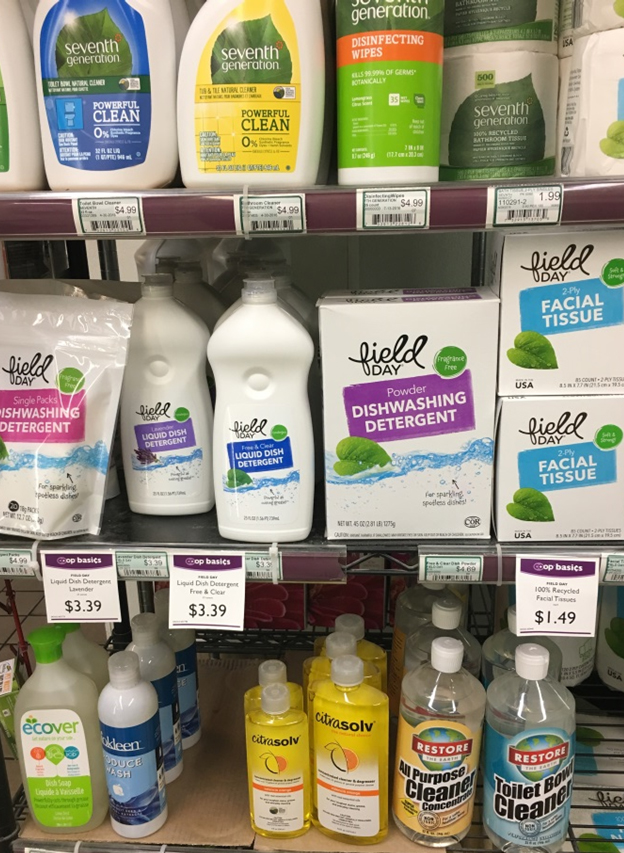A Brazilian colleague of mine moved her family to my town for her sabbatical year. The big questions were predictable: where to take English classes; how to get the teenagers involved in school; how could they manage without a car; how would their insurance work in our healthcare system; and what should they wear in winter. Then, the more mundane topics: where to buy fresh bread, and what’s up with the strong chemicals in our cleaning products?
 She wondered why we would use those in our bathrooms and kitchens, places where we are most exposed to inhaling, ingesting, or absorbing them. In Brazil, cleaning takes place daily with water and either a squeegee or cloth that can be washed and line-dried. Floors have central drains and windows are thrown open to freshen and dry the rooms. And the rooms are clean! I have lived there for weeks on end and never thought twice about whether the housekeeping was adequate.
She wondered why we would use those in our bathrooms and kitchens, places where we are most exposed to inhaling, ingesting, or absorbing them. In Brazil, cleaning takes place daily with water and either a squeegee or cloth that can be washed and line-dried. Floors have central drains and windows are thrown open to freshen and dry the rooms. And the rooms are clean! I have lived there for weeks on end and never thought twice about whether the housekeeping was adequate.
We walked to my co-op and looked at natural products. She found dish soap on sale that passed scrutiny. We considered the scouring powder that was simply mineral (we are geologists!) but eventually she settled on cotton towels to wipe down her floors with water.
Our cleaning and personal care products do end up going down the drain and then into our waters. What becomes of those chemicals that we really shouldn’t be inhaling or ingesting? They become much diluted of course, but beyond that, we only realize their impact when they emerge as a problem. Chemicals of emerging concern – CECs – that’s the label for water resource specialists.
Minnesota banned triclosan — ubiquitous in antibacterial soaps, some deodorants, and even toothpaste — in 2014. University of Minnesota studies showed that it could disrupt sex and thyroid hormones, contribute to bacterial resistance, and breakdown into harmful dioxins. Our ban took effect on January 1, 2016; the federal government followed suit this month with a total ban on triclosan and 18 other antibacterial chemicals from soaps because manufacturers hadn’t shown that they were safe or more effective than plain soap and water. However, use of some triclosan products is still allowed, such as in Colgate Total toothpaste (because it is shown to be effective at preventing gingivitis). Guess I’ll be looking for a new toothpaste.
What goes down the drain never really goes away. We will eventually drink it or its reactants. Maybe it’s time to go back to baking soda and vinegar for the tough stuff, but mostly rely on the remarkable properties of our favorite polar molecule, water.
— Carrie Jennings, research and policy director